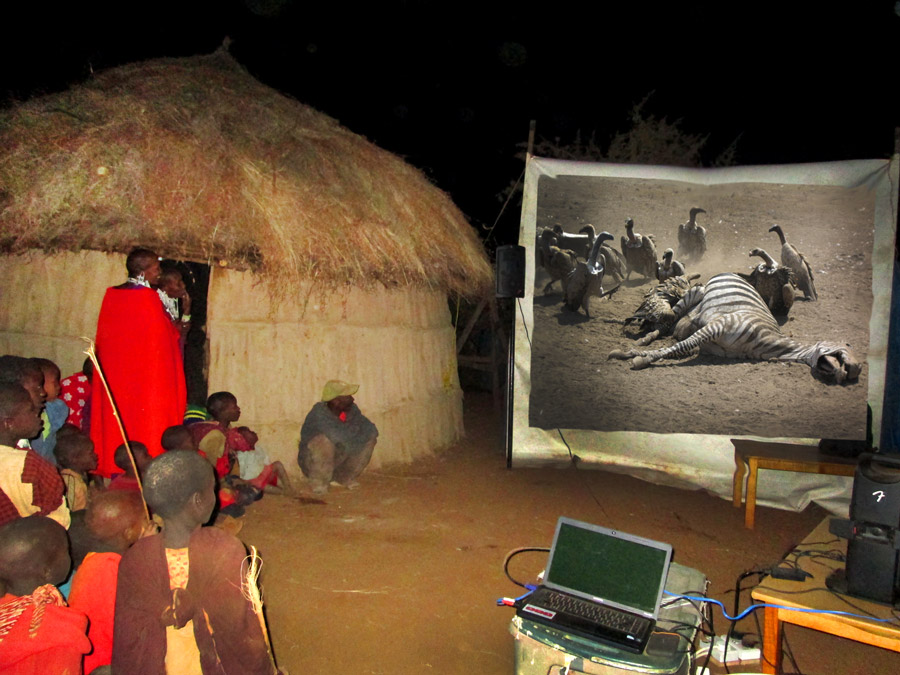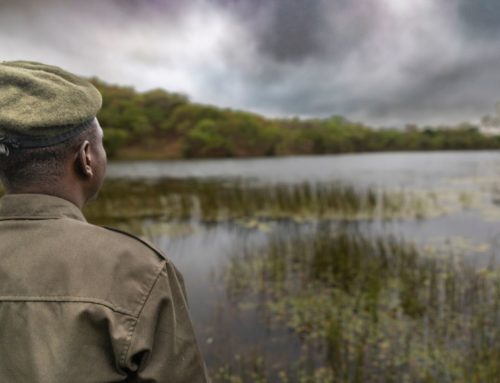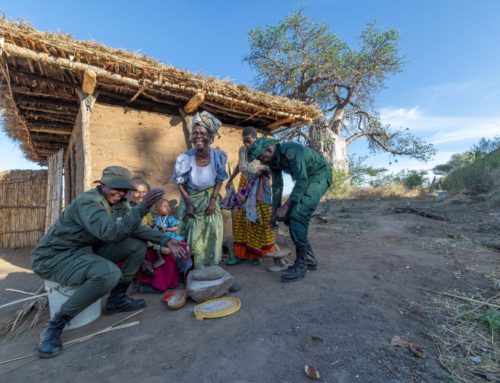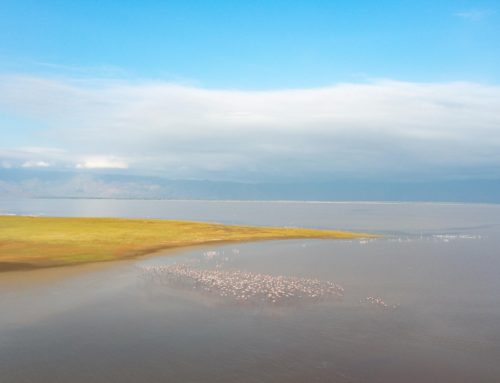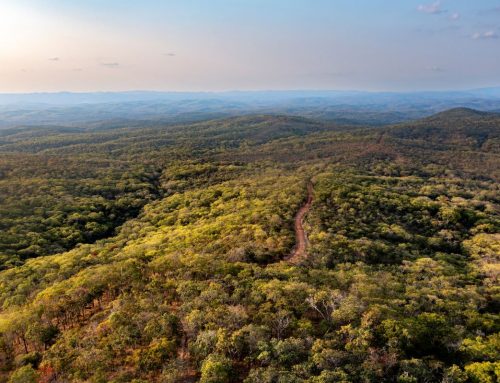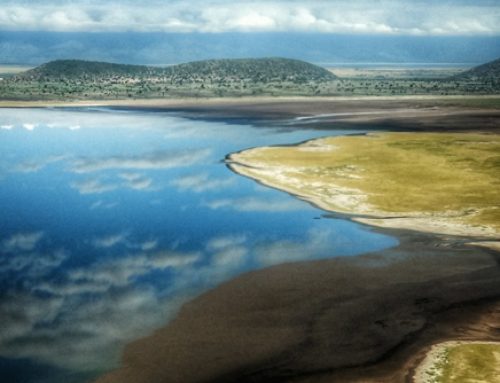At dusk, the MC fired up the film projector and let the music blast from two portable speakers. It had been market day in Lerangwa Village, and shoppers and revelers soon gathered around the projector, listened to a Maasai pop song, and eagerly awaited the show to begin.
Soon enough, images of WMA rangers going on patrols appeared on the screen, which had been hung over a clapboard shack in the middle of the village. Some elders and warriors in the audience let out guffaws, as they recognized some of the rangers and then called out their names.
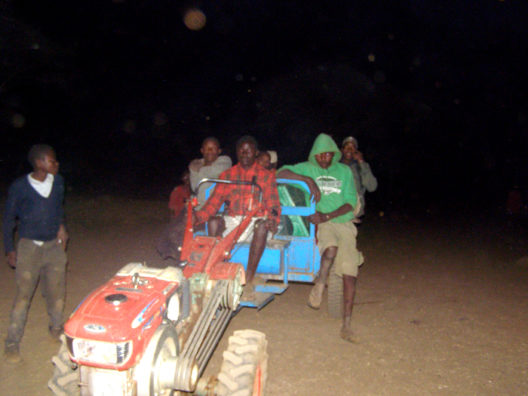
Transporting the cinema
Welcome to movie night as hosted by Honeyguide’s Mobile Cinema Unit in the villages of the Enduimet Wildlife Management Area (EWMA). Since September 2013, more than 3,400 villagers have viewed a documentary specifically created for them about the EWMA. Produced by Big Life Foundation, the film covers a range of issues, including WMA governance, accountability, benefits, employment, as well as human-wildlife conflicts, poaching, and natural resource management.
Touchstone Trust has also been a key donor for the program, and IDEA WILD donated all of the equipment for the MCU.
By early 2014, the MCU will have shown the documentary and other related films to all nine villages and all of their sub-villages in the EWMA, with a combined audience of up to 6,000 or more.
The MCU coordinator, Lomayani Komolo Simel, comes from a village in Enduimet. Komolo also serves as the MC during the movie nights. Throughout the evening, he leads discussions and conducts surveys about villagers’ concerns and questions about the WMA and wildlife management issues in general.
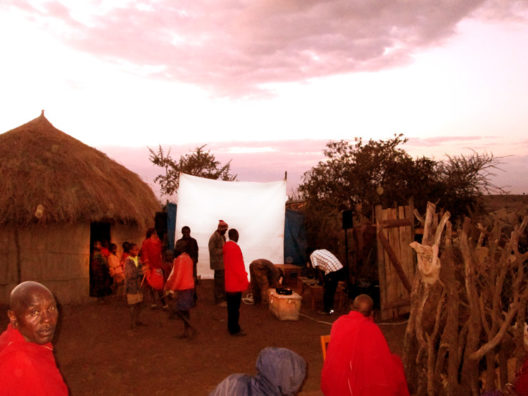
Ready for the evening show
Human-wildlife conflicts have topped villagers’ remarks thus far, leading Honeyguide to focus even more on its crop protection programs. As an outstanding surprise, Maasai women have also been extremely vocal during many screening discussions, pressing the need to increase women’s roles in WMA management, employment, and community programs.
Both communities and Honeyguide have already learned a great deal from each other. In fact, discussions after the first Lerangwa Village screening went on until midnight!
Next year, Honeyguide will refine its methodology to learn how cinema can be used more effectively as tool to both spread and gather information about community-based conservation. It’s also clear that moviegoers in the Maasailands will only continue to multiply.

